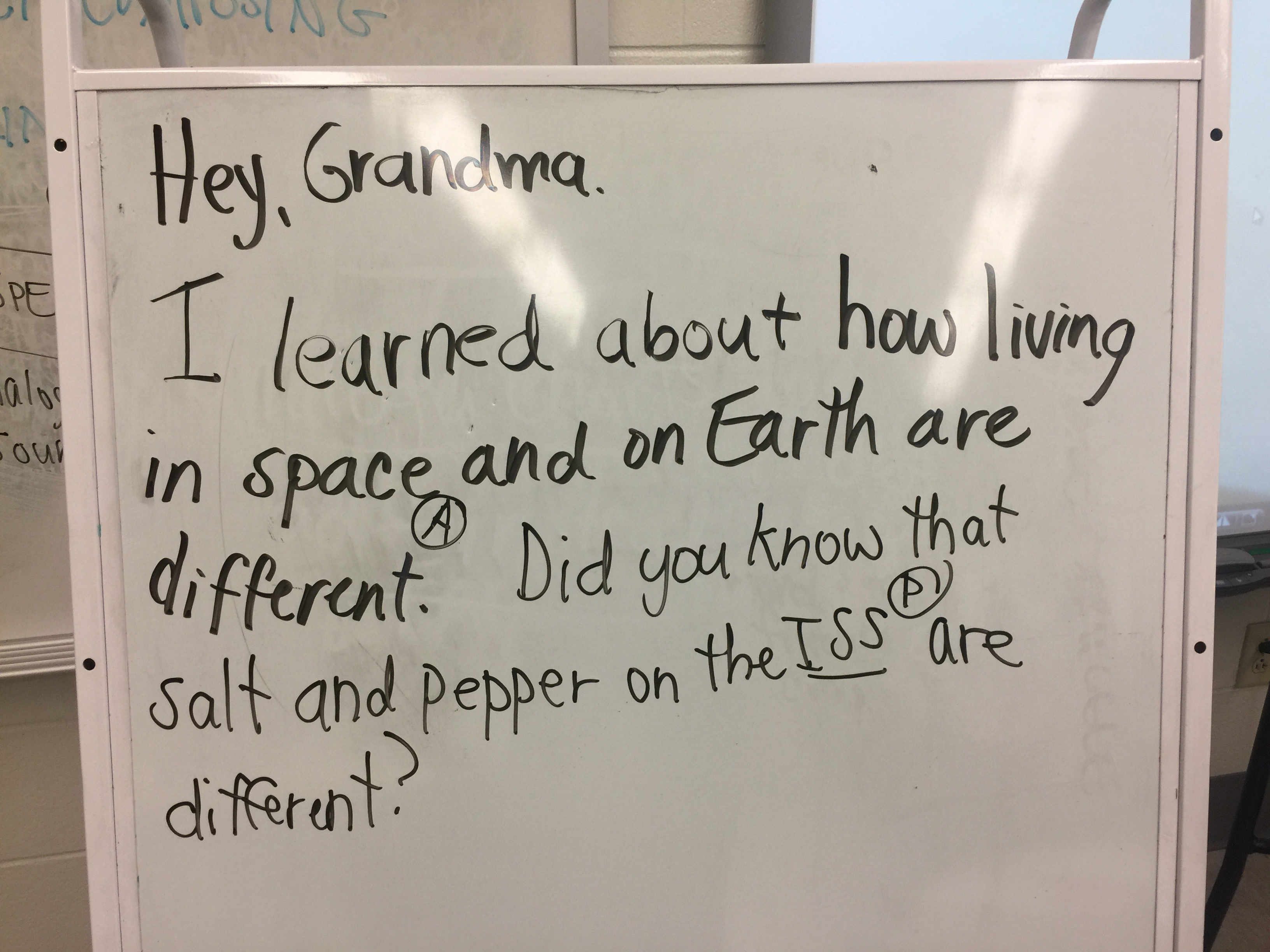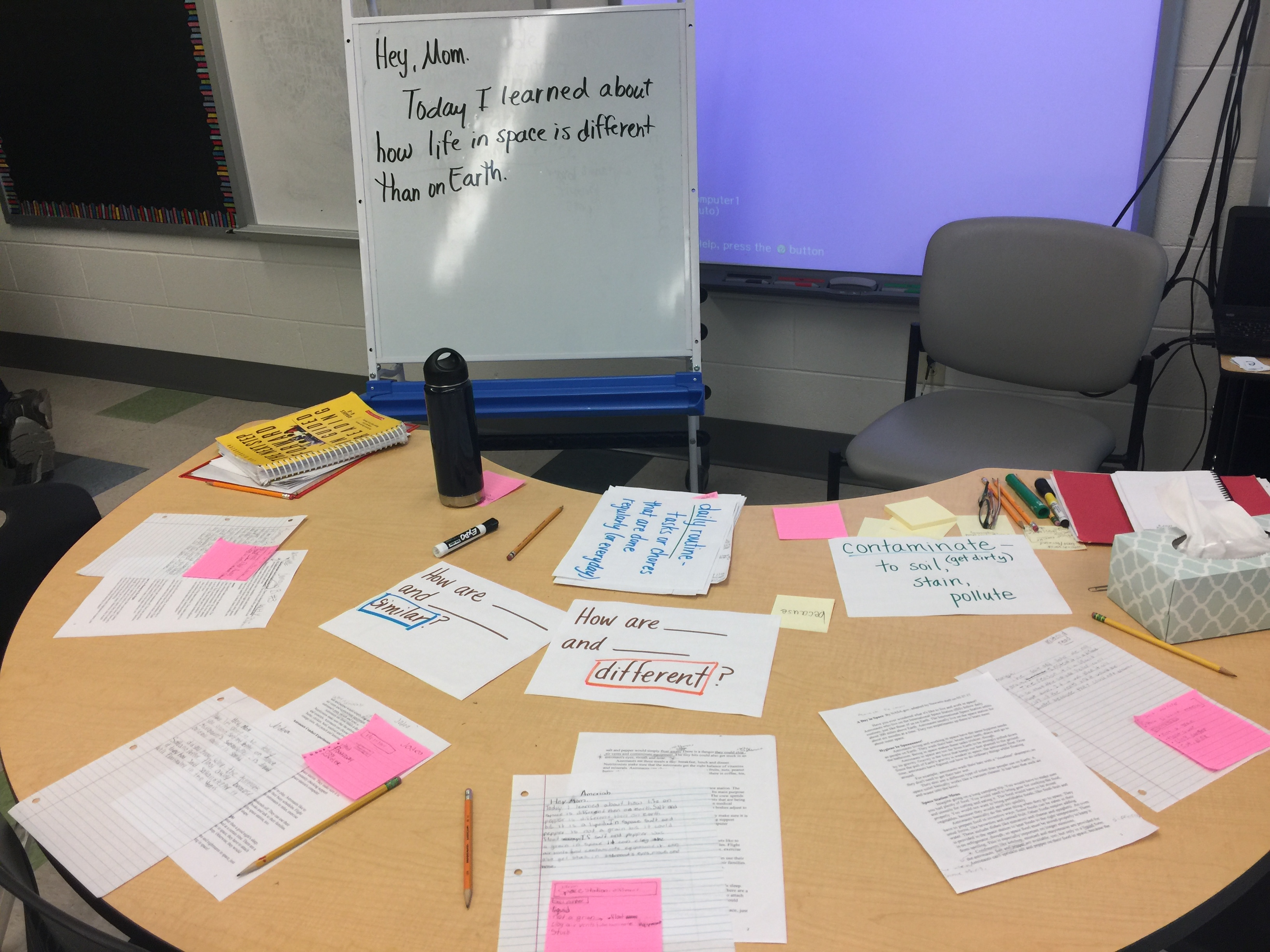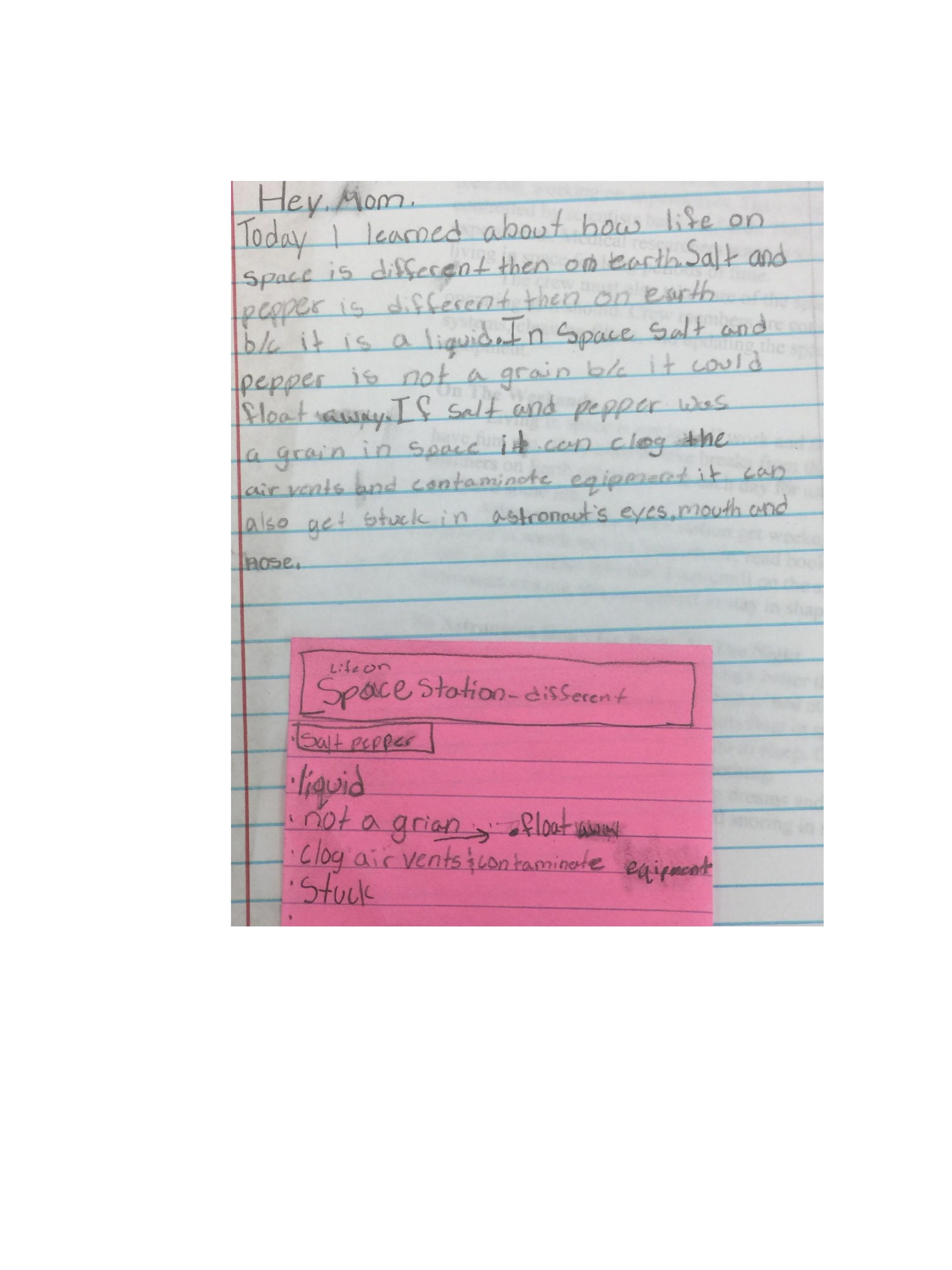“Who will you tell?” This is a conversation I’ve started having with students at the guided reading table before they write in response to an informational source. I usually start by saying something like the following:
When you go home tonight and your mom asks about school, you could just say, “It was okay” OR you could ask, “When I was born, did you lick me to keep me safe from predators like the mother impala does?”
They are with me at this point. Then I check in with each student, “Who will you tell about what you learned today?” The answers vary — mom, dad, grandmother, big sister, a best friend, another teacher.


This has become a regular part of my guided writing discussions with students in the elementary grades. A few weeks ago, after a group of students read and annotated excerpts from A Day in Space, they planned (using bulleted notes on a sticky note) for what they would say to someone later that day to explain why salt on the International Space Station has to be a liquid instead of a solid like on Earth. We orally rehearsed, engaged in shared writing of the first sentence or two (as a model) and then they wrote (what they were planning to say).
The language of informational sources is tricky–it’s not how we talk on a regular basis. For many students this is an opportunity to work on oral language development as well as writing. By giving students time to orally rehearse and then write (with a real audience in mind), we are helping them develop an ear for what informational writing should sound like as well as what conversations about what we learned about the world might sound like.

The next day I checked in with the Day in Space students, “Who did you talk to last night?” They spoke enthusiastically about who they’d talked to. (A few hadn’t 😉 We engaged in close reading of another excerpt of the article–how toilets on the ISS are different than those on Earth. They left armed with key details to explain to someone beyond the guided reading table. (How many of our students are identifying key details in sources but not explaining in their writing? 😉
This can be powerful. A teacher emailed me that she’s been trying this. The students actually start the written response with “Hey, Mom!” or “Hey, _______.” She takes pictures of the students with their writing and texts to the parents during the day using the “Remind” app. Parents have commented to her that this has changed conversation at the dinner table. Woohoo!!!!
A note of caution, though. You know your students better than I do. Tailor this to meet their personal circumstances, huh? One student told me she has no one to tell. She lives with her grandma who only speaks Spanish and the student only speaks English. I quickly encouraged her to choose a teacher at the school she could tell about what she learned. During a different lesson, another young man looked despondent as the other students chose someone at home to tell. His teacher told me later that he is pretty much on his own at home. I regrouped the next day and when we decided to tell his teacher about what he’d learned, he perked up.
Hope this helps.
S
